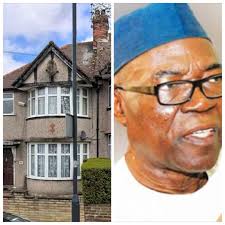Uncategorized
High-speed railways boost China’s tourism
By Zhao Shan
Bullet trains are once again driving an upsurge in China’s tourism industry as a number of new high-speed railways have been put into operation this summer and further shortened the travel time between cities.
According to the recent half-month booking statistics released by Chinese leading online leisure travel company Tuniu, the number of tourists taking high-speed railway as the major means of transportation surged by 132 percent from a month ago. The search volume for high-speed train tours more than tripled on another online travel platform Mafengwo.
Online travel agency Tongcheng recorded an 80-percent monthly rise in the booking volume of high-speed train tour packages in June, and over half of the agency’s customers said high-speed trains were a prioritized choice for them and high-speed train tours would embrace faster growth.
A high-speed railway linking Zhengzhou, central China’s Henan province and southwest China’s Chongqing municipality was opened in late June, shortening the trip between the two cities from eight hours to four.
The line connects the southwestern, central and northern regions of China and crosses a number of tourist attractions, including the Shaolin Temple and Wuhou Memorial Temple in Henan, the current location of Three Kingdoms-era (220-280 AD) strategist Zhuge Liang’s hometown Longzhong and the Shennongjia National Park in central China’s Hubei province, as well as the Small Three Gorges scenic area and Ciqikou ancient town in Chongqing.
Chongqing’s Wushan county, which sits along the high-speed railway, reported over 2.1 million tourist arrivals in just half a month after the railway was put into operation, up 49.7 percent year on year.
Spur-of-the-moment trips or mini-breaks on weekends or holidays are popular among Chinese tourists nowadays, and high-speed railways have contributed a lot to this trend. Bullet trains, which are convenient and comfortable, provide people an opportunity to go on an in-depth exploration of their destinations in a short journey time.
Recently, the world’s first railway loop circling a desert was formally put into operation in northwest China’s Xinjiang Uygur autonomous region.
Stretching eastward from Hotan city to Ruoqiang county along the southern edge of the Taklimakan, the world’s second-largest shifting-sand desert, the railway is an artery of China’s western railway network, an important part of Xinjiang railways, and a fast channel linking southern Xinjiang and other parts of China.
It is a historic railway for many counties in the region to end their history of no train access. It carries passengers to cross the Taklimakan and tour the ruins of ancient Niya city and other places that were once unreachable in the past. The bookings of related train tours have been surging recently, according to Tuniu.
Feng Rao, head of Mafengwo’s tourism research institute, told People’s Daily that the constantly improved high-speed railway network in China has significantly reduced travel time and thus expanded tourists’ radius of trips.
It not only brings more possibilities for short-distance travel, but also will tremendously promote the tourism industry in regions along the railways, Feng added.
High-speed railways, vitalizing both inter-provincial and short-distance travels, have become a driving force for tourism development. Many tourist destinations along high-speed railways have rolled out measures to stimulate tourism.
In Hubei and Chongqing, high-speed train passengers can get free tickets or a 50-percent discount on tickets for multiple famous scenic spots; the ancient city of Xiangyang in Hubei unveiled night economy-themed tourist routes to attract visitors; culture and tourism departments in east China’s Jiangsu, Zhejiang and Anhui provinces, as well as Shanghai jointly released a list of tourism destinations along the high-speed railways in the Yangtze River Delta region.
Uncategorized
London Property Dispute Exposes Alleged Corruption, Forgery by Nigerian Politician and Lawyer

By Hassan Taiye
A recent judgment by the UK’s First-tier Tribunal (Property Chamber) has shed light on a complex web of alleged corruption and forgery involving a Nigerian politician and a senior lawyer. The case revolves around a disputed property in North London, valued at 79 Randall Avenue.
The property was purchased in 1993 under the name “Tali Shani,” which is allegedly an alias for late General Jeremiah Useni, a powerful member of the Abacha regime. Chief Mike Ozekhome, SAN, claimed the property was gifted to him by “Mr. Tali Shani” in 2021 as payment for legal services. However, the tribunal dismissed this claim, describing it as “fabricated” and “fraudulent.”
The tribunal’s ruling highlights the alleged involvement of Ozekhome and his associates in fabricating documents, including a Nigerian passport, National Identification Number (NIN), and Tax Identification Number (TIN). The NIN was reportedly created remotely from Monaco using a non-compliant photograph and bypassing biometric requirements ¹.
The Human and Environmental Development Agenda (HEDA Resource Centre) has petitioned the Independent Corrupt Practices and Other Related Offences Commission (ICPC) to investigate Ozekhome and others over alleged fraud, forgery, and unlawful attempt to acquire the London property. The ICPC has launched an investigation, and the Attorney-General of the Federation (AGF) has also taken notice of the case ²
Chief Mike Ozekhome, SAN Senior lawyer accused of forgery and attempting to acquire the property through fraudulent means.
General Jeremiah Useni Late Nigerian General allegedly behind the purchase of the property under the alias “Tali Shani.”
Osilama Ozekhome*: Ozekhome’s son, implicated in the alleged forgery and fraud.
Uncategorized
photo

L-r Senate Committee Chairman on Appropriation, Solomon Adeola; Senate Deputy Whip, Onyekachi Nweboyin; Former Senate President, Ahmad Lawan; President of the Senate, Godswill Akpabio; Senator Sharafadeen Ali; Deputy Senate President, Jibrin Barau; Senate Leader, Opeyemi Bamidele; Senate Whip Tahir Monguno and Senate Committee Chairman on Financial Institutions, Tokunbo Abiru, after resumption of plenary yesterday. Photo: Senate President’s Office
Uncategorized
BREAKING: Tinubu’s Minister, Uche Nnaji, Resigns Amid Certificate Forgery Scandal

By: Fabian Apechihin
The Minister of Innovation, Science and Technology, Uche Nnaji, has resigned from President Bola Ahmed Tinubu’s cabinet amid a growing controversy surrounding his academic credentials.
Presidential spokesman Bayo Onanuga confirmed Nnaji’s resignation in a statement issued late Tuesday.
Nnaji’s exit follows mounting allegations that his academic certificates were forged. Investigations revealed that the University of Nigeria, Nsukka (UNN), disowned the Bachelor of Science degree he claimed to possess, stating that he never completed his studies at the institution and was therefore not issued any certificate.
According to UNN Vice-Chancellor Prof. Simon U. Ortuanya, Nnaji was admitted in 1981 but failed to meet the requirements for graduation.
In a related development, the National Youth Service Corps (NYSC) reportedly disowned the certificate of national service presented by Nnaji, describing it as fake.
His resignation marks the latest in a series of controversies to hit the Tinubu administration over questions of integrity and accountability among public officials.
-

 Uncategorized5 years ago
Uncategorized5 years agoFG, states urged to harness flooding for ranching, others with technology – Agbaje
-

 Headlines10 years ago
Headlines10 years agoBreaking: EFCC seals Borno House of Assembly, as Hon members take to their heels
-

 News11 years ago
News11 years agoNigeria Security Operatives Stage Manhunt For Homosexual Perpetrator
-

 News9 years ago
News9 years agoHow 21-year-old Girl fled community over accusation of lesbianism
-

 News10 years ago
News10 years agoYobe Gov Moves Against Deputy
-

 Opinion6 years ago
Opinion6 years ago7 signs she has friend zoned you
-
Technology4 years ago
Online job placement company headhunts women
-

 Headlines9 years ago
Headlines9 years agoBorno Dep Gov Abducts Another Church Leader





